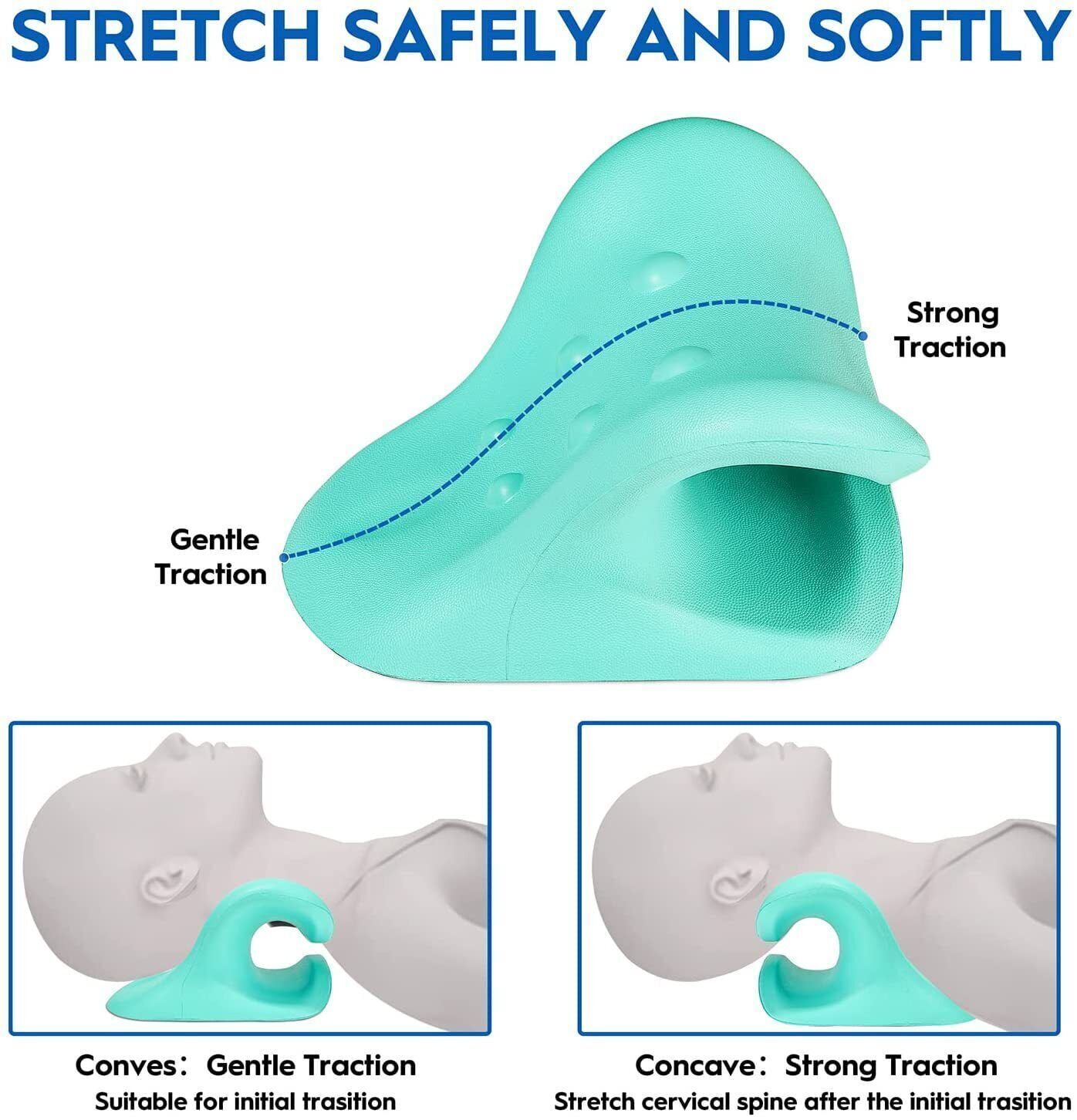Neck Cloud: Ergonomic Style for Maximum Convenience and Discomfort Reduction
Neck Cloud: Ergonomic Style for Maximum Convenience and Discomfort Reduction
Blog Article
The Influence of Anxiety on Neck Pain: Techniques for Reducing Stress and Discomfort
In today's hectic globe, it's clear that tension has become a widespread consider the beginning and worsening of neck pain. The detailed connection between tension and muscle mass tension often leaves individuals seeking remedy for the discomfort that ensues. By discovering targeted approaches focused on reducing stress and advertising relaxation, one can start to deal with the root triggers of neck discomfort and work towards an extra well balanced state of well-being. Join us on a trip to unwind the impact of stress and anxiety on neck pain and find reliable ways to relieve pain and enhance overall high quality of life.
Understanding Stress-Related Neck Discomfort
Neck discomfort is a typical complaint that can commonly be connected to tension. Stress-related neck pain can materialize as tension, stiffness, or pain in the neck and shoulder location. The link between tension and neck discomfort depends on the body's physiological action to tension, which can result in muscle stress and rigidity in the neck muscles. Persistent stress and anxiety can lead to consistent neck pain and exacerbate present conditions like cervical spondylosis or muscle pressures.

Identifying Common Tension Locations
Frequently experienced by individuals under stress and anxiety, tension locations in the body can supply useful insights right into the physical indications of mental strain. One common tension location is the neck, where stress usually manifests physically. Stress frustrations, rigid neck muscular tissues, and limited series of activity prevail signs of stress-related neck stress. The shoulders are an additional common area where tension collects. Stress and anxiety can cause the muscle mass in the shoulders to tighten up, bring about pain and discomfort. Additionally, the upper back is susceptible to tension accumulation, specifically in people that experience persistent stress. Poor position and long term resting can intensify tension in this area. The jaw is likewise a common area for stress-related stress, as lots of people squeeze their jaw or grind their teeth when worried. Being mindful of these usual stress locations can aid people identify the physical signs of tension and take actions to address them before they escalate into chronic pain or pain.
Applying Leisure Methods
Leisure methods are valuable tools for minimizing neck discomfort caused moved here by tension. Furthermore, tasks like yoga exercise and tai chi incorporate both physical motion and leisure, making them reliable methods for lowering tension and neck pain. By integrating these leisure strategies right into your daily routine, you can help handle anxiety degrees, decrease stress in the neck, and relieve pain associated with stress-induced neck pain.
Including Self-Care Practices
Integrating self-care methods is crucial for keeping total well-being and managing stress-related neck pain effectively. Taking part in regular physical activity, such as gentle stretching exercises or yoga, can aid alleviate tension in the neck and shoulders. Exercising great position throughout the day and taking regular breaks from extended sitting or screen time can also protect against pressure on the neck muscular tissues.
Furthermore, focusing on appropriate rest and establishing a consistent sleep regimen can add significantly to lowering stress and anxiety degrees and he said promoting relaxation. Creating a soothing bedtime regimen, such as reviewing a book or taking a warm bath, can assist prepare the body and mind for relaxing sleep. In addition, preserving a balanced diet abundant in nutrients and staying hydrated can sustain general health and lower swelling that may aggravate neck pain.
Integrating mindfulness methods, such as deep breathing exercises or reflection, can help take care of anxiety and promote leisure. Taking some time for oneself, engaging in leisure activities, and setting borders to secure personal time are also vital elements of self-care that can add to decreasing stress and alleviating neck discomfort.
Seeking Expert Help
Exactly how can individuals effectively resolve consistent neck pain that is affecting their daily life and well-being? Seeking specialist assistance can be an essential action in managing and relieving neck discomfort. Consulting with health care specialists such as chiropractic doctors, physiotherapists, or orthopedic specialists check here can supply valuable insights and tailored treatment plans. These professionals can carry out thorough evaluations to detect the underlying causes of neck pain and suggest proper treatments.
Chiropractic doctors focus on back manipulation techniques to improve positioning and decrease tension in the neck area. Physiotherapists use targeted workouts and stretches to enhance muscle mass, enhance flexibility, and enhance overall neck feature. Orthopedic professionals can provide advanced clinical treatments such as shots or medical choices for serious situations of neck pain.
Verdict

Stress-related neck pain can manifest as tension, tightness, or discomfort in the neck and shoulder area. The connection between stress and anxiety and neck discomfort exists in the body's physical action to stress and anxiety, which can result in muscular tissue stress and rigidity in the neck muscle mass. Stress frustrations, tight neck muscular tissues, and limited variety of movement are common symptoms of stress-related neck tension. By including these leisure methods into your daily routine, you can aid manage anxiety levels, minimize stress in the neck, and relieve discomfort linked with stress-induced neck pain.

Report this page